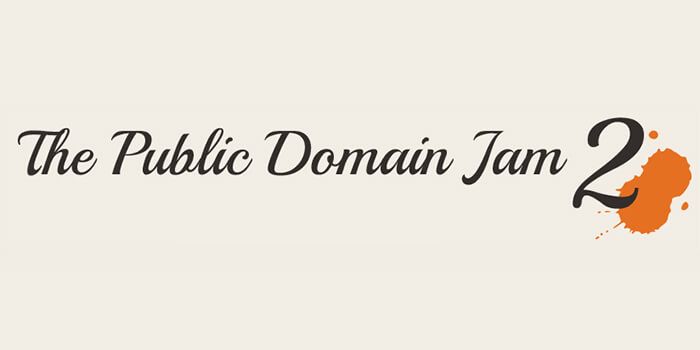The Public Domain Jam seeks to answer the question of why so many games use zombies and Lovecraft's Cthulhu as their story basis. Easy—they're in public domain, they're recognizable, and there are a lot of stories to tell based on just these two fiction elements.
But, as the public domain games created for the Public Domain Jam show, these aren't the only stories we can tell in game form. With over twenty entries, the second annual PDJ wrapped up recently, with developers creating a game based on a work in the public domain in just ten days.
Ten days isn't a long time to develop a game—many of these public domain games feature bugs, errors, or are unfinished. Regardless, they're a lot of fun to play, showing how a prompt—this year's secondary theme was "Time/Less"—and a deadline can encourage devs to put out some pretty creative work.
We're taking a look at the five highest-rated public domain games from the jam—check them out, and don't forget to show these indie developers a little love!
Fifth Place: Deli Interactive's Lair of the Morlocks
Deli Interactive's Lair of the Morlocks turns H. G. Wells' famous The Time Machine into a playable adventure, featuring some pretty entertaining ragdoll physics and cave exploration. As the Time Traveller, the player navigates a cave in search of his lost time machine, avoiding Morlocks and freeing the Eloi from their cages as he goes.
Though the game took fifth place overall, it ranked second for sound, and with good reason—the music is nice and suits the game's setting well, and the sound effects, particularly the grunts and groans of the Morlocks, are satisfying as you damage them. Deli Interactive has a couple of other games available on their website, so be sure to give them a look if you like the work they were able to accomplish in this ten-day game jam.
Fourth Place: Kara Jayne's Zombies of Lesbos
Kara Jayne's (who also entered NaNoRenO) Zombies of Lesbos takes a pretty unique approach public domain games—rather than sticking to one source, this game blends Greek poet Sappho with Night of the Living Dead, as the goddess Nyx curses Sappho and her island of lovers (the island being Lesbos, also known as the etymologic origin of the word 'lesbian') with a plague of the undead. Wielding her magic lyre, Sappho must recover scraps of her lost poetry to summon the goddess Aphrodite to save the day.
Zombies of Lesbos received fourth place overall, and second place for remaining true to the source material. Thanks to the zombies, the game stays fresh and innovative, with a cute little kissing mechanic between Sappho and her lovers to regain health and magic power. Check out developer Kara Jayne and her other games here.
Third Place: Ed Curtis-Sivess' Goldi
Ed Curtis-Sivess blends two unlikely sources in Goldi—the classic Goldilocks and the Three Bears fairy tale, and Machiavelli's The Prince. As the titular character, you explore the three bears' home, interacting with objects and learning more about these curiously political bears until a twist reveals more humorous social commentary, adding to the jokes that pepper the rest of the story.
This public domain game took third place overall, tying for second place for sound with Lair of the Morlocks. It's funny, entertaining, and smart—for more, check out Curtis-Sivess other games here.
Second Place: Ian Burnette's Out, Damned Spot!
Shakespeare is one of our biggest cultural touchstones, but not one frequently explored in gaming. Ian Burnette takes up the cause in Out, Damned Spot!, a quick little isometric game telling one of Macbeth's most important scenes from Lady Macbeth's perspective, as she kills guards and washes her hands of their blood to stop their ghosts from haunting her.
Out, Damned Spot! took second place overall, but took first place in the fun category. Requiring some strategy to beat, this game is a solid example of how public domain games can stay true to their inspiration while also reinventing for fun. Check out more of Ian Burnett's work via his website.
First Place: Daniel Mullins' The Tell-Tale Heartbeatz
When thinking of game genres that match Edgar Allen Poe's work, rhythm games are probably not the first genre to come to mind. But that's precisely what Daniel Mullins did with The Tell-Tale Heartbeatz, turning Poe's horror story into a fun, animated rhythm game where hitting the right keys allows the narrator to smother the old man, dismember him, and attempt to evade capture.
The game took first place overall, as well as first in staying true to the source material, most innovative use of the source, polish, and sound. Though it's based on a horror story, it's funny, too—the play on heartbeat and music goes all the way to the core mechanic. For more of this macabre humor, check out Mullins' other work on itch.io, including the previous Public Domain Jam winner, Paper Jekyll.

